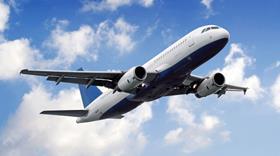
The International Air Transport Association (IATA) this week (16 March) highlighted the importance of air cargo in helping countries fight the Covid-19 pandemic, and called on governments to take urgent steps to make sure that air freight will be available to continue to support the worldwide campaign against the coronavirus.
Air cargo is transported both by dedicated freighter aircraft and in the cargo holds of passenger aircraft with a large proportion of it flown by airliners, but the global collapse in air passenger demand has resulted in many airliners being taken out of use and “parked”. This has very significantly reduced the available freight capacity, IATA explained.
Air freight has been transporting essential medicines, medical equipment, spare parts and components for such equipment, as well as maintaining global supply chains for time-sensitive operations, the IATA said in a press release. It has also been transporting food and other goods, bought online, thereby supporting various national social distancing and quarantine policies.
The IATA urged governments to ensure that air cargo would continue to be available to fulfill these missions.
“Over 185,000 passenger flights have been cancelled since the end of January in response to government travel restrictions,” said IATA director-general and CEO Alexandre de Juniac.
“With this, vital cargo capacity has disappeared when it is most urgently needed in the fight against Covid-19. The world’s fleet of freighter aircraft has been mobilised to make up this capacity shortfall. Governments must take urgent measures to ensure that vital supply lines remain open, efficient and effective.”
Steps that governments must take include exempting the crew members of freighter aircraft, who do not encounter the public, from 14-day quarantine measures and exempting air cargo operations from Covid-19 travel restrictions.
Standardised measures should be implemented, to allow air freight to move globally with minimum disruption. Temporary traffic rights for cargo operations should be supported, in cases where restrictions apply. Economic impediments to air freight, such as parking fees, “slot” restrictions and overflight charges, should be removed during the crisis.
“Air cargo carriers are working closely with governments and health organisations around the world to safeguard public health while also keeping the global economy moving,” said de Juniac. “Today, as we fight a global health war against Covid-19, governments must take urgent action to facilitate air cargo. Keeping cargo flowing will save lives.”



